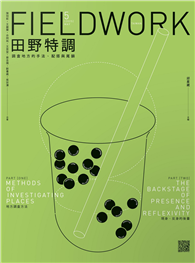Large-scale social and political changes have revolutionized policy-making. Traditionally, policy analysis has been state-centered, based on the assumption that central government is self-evidently the locus of government. However, policy-making is often carried out today in loosely organized networks of public authorities, citizen associations and private enterprises. The contributors to this book argue that democratic governance now calls for a new deliberatively-oriented policy analysis. They provide examples from around the world to demonstrate how this would work in practice.
| FindBook |
有 1 項符合
Deliberative Policy Analysis: Understanding Governance in the Network Society的圖書 |
 |
Deliberative Policy Analysis: Understanding Governance in the Network Society 作者:Hajer 出版社:Cambridge University Press 出版日期:2003-06-30 語言:英文 規格:精裝 / 324頁 / 22.9 x 15.5 x 2.3 cm / 普通級 |
| 圖書館借閱 |
| 國家圖書館 | 全國圖書書目資訊網 | 國立公共資訊圖書館 | 電子書服務平台 | MetaCat 跨館整合查詢 |
| 臺北市立圖書館 | 新北市立圖書館 | 基隆市公共圖書館 | 桃園市立圖書館 | 新竹縣公共圖書館 |
| 苗栗縣立圖書館 | 臺中市立圖書館 | 彰化縣公共圖書館 | 南投縣文化局 | 雲林縣公共圖書館 |
| 嘉義縣圖書館 | 臺南市立圖書館 | 高雄市立圖書館 | 屏東縣公共圖書館 | 宜蘭縣公共圖書館 |
| 花蓮縣文化局 | 臺東縣文化處 |
|
|
圖書介紹 - 資料來源:博客來 評分:
圖書名稱:Deliberative Policy Analysis: Understanding Governance in the Network Society
|










